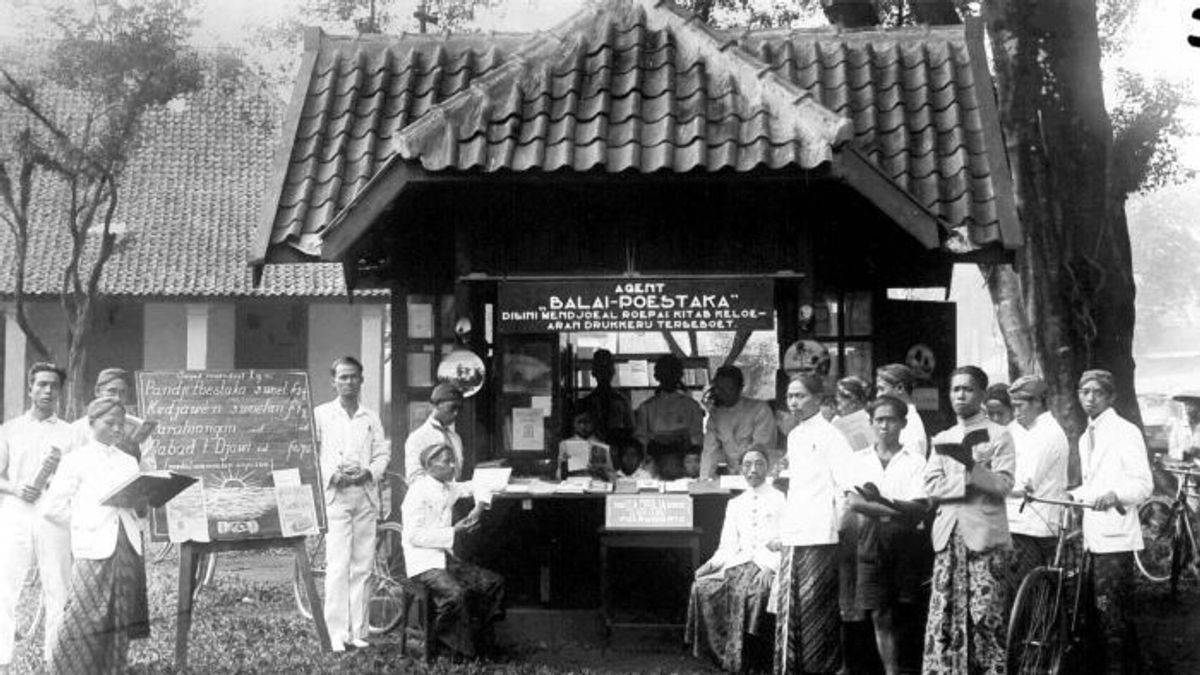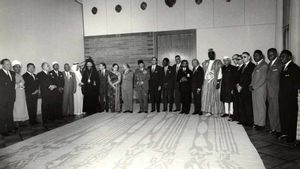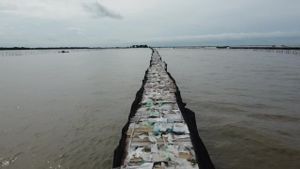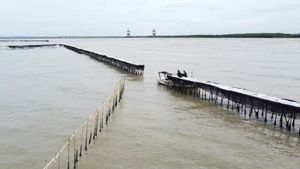JAKARTA - Entering the early 20th century, the awareness of the indigenous people of the Dutch East Indies that they were being colonized began to rise. Critical writings against the Dutch government have started to circulate. The colonial government had a clever way of mitigating this by publishing writings that made the people forget that they were being colonized. They publish the reading through Balai Pustaka.
The Dutch government established Balai Pustaka on this day, September 14, 112 last year or in 1908. Initially, the institution was named Commissie voor de Inlandsche School en Volkslectuur or the Commission for Indigenous School Reading and People's Reading.
Balai Pustaka was created to publish books, magazines and newspapers. All types of writing have the opportunity to be published in Balai Pustaka except for one: writings that contain elements of struggle.
This is because most of the works published by Balai Pustaka are types of reading that can lull the natives. In other words, the Dutch wanted the indigenous people to forget that they were being colonized.
The desire of the Dutch for the people to forget that being colonized was not baseless. At that time the bumiputra newspaper was widely circulated in the community. Criticism is channeled through the writings in the newspaper.
The people at that time had begun to dare to show their dissatisfaction with the Dutch East Indies regime. The courage of the people who raised concerns through writing made the Dutch East Indies Government even more restless. It was on this basis that Balai Pustaka was founded by the Dutch.
The name Balai Pustaka underwent a change during its time. After Commissie voor de Volkslectuur, the name 'Balai Pustaka' was used in 1917. When the Japanese began to invade Indonesia, the name changed to Gunseikanbu Kokumin Tosyokyoku. Balai Pustaka had transferred to the Netherlands in July 1947. However, in 1949, Balai Pustaka was returned after officially recognizing the sovereignty of the Republic of Indonesia. Until now, the name Balai Pustaka was used.
Launching Tirto, quoting Pamusuk Eneste in the Overview of Modern Indonesian Literature, there are three Balai Pustaka product lines. First, books for children. Second, entertainment books and references in local languages. Third, entertainment books and references in Malay. Of course, books that contain politics and the international world are not in the category of good reading.
Hidden agendaBefore independence, Balai Pustaka built around 2,800 People's Reading Gardens. In addition, Balai Pustaka has never been absent from publishing Indonesian Literary works. Even Balai Pustaka had dominated the publication of literary books in the 1950s.
In addition, Balai Pustaka has also succeeded in gaining the trust of the public, and has even been used as an example for successfully holding leadership in publisher ranks. Launching Indonesian Publisher's Foreign Literature Work, many writings published by Balai Pustaka include those of R. Sutomo, RMA Wurjadiningrat, P. Surjodiningrat, Hamka, Prof. Dr. Asikin, and so on.
But on the other hand, this causes the writer's dependence on Balai Pustaka. Many new writers are proud if their writings are successfully published by Balai Pustaka. Such conditions provided the opportunity for the Dutch East Indies to enter their ideology in the writings of the writers who wanted their work to be published. The writers are forced to limit their creativity for their writings to be published by Balai Pustaka.
Apart from that, none of the written works contained elements of Indonesian politics. Stories of "concubinage" from the Netherlands were not published.
Not only that, there are several other requirements for written works to be published, namely that they must not be obscene and contain elements of crime stories. All works written using an imaginary world. The Dutch East Indies wanted to keep its name so fragrant, on the other hand Balai Pustaka really wanted to maintain the morale of the people.
After the Dutch recognized Indonesian sovereignty and handed over Balai Pustaka, Balai Pustaka came under the Ministry of Education and Culture. Apart from literature, Balai Pustaka also has the right to publish textbooks from the government. However, Balai Pustaka was not the only publisher as time went on. Many private publishers publish literary works, so that the prestige of Balai Pustaka has faded.
After hundreds of years of existence Balai Pustaka is still standing strong until now. These institutions also follow the times. This is evidenced by the launch of the Balai Pustaka eBookstore in 2013.
The English, Chinese, Japanese, Arabic, and French versions are automatically generated by the AI. So there may still be inaccuracies in translating, please always see Indonesian as our main language. (system supported by DigitalSiber.id)










